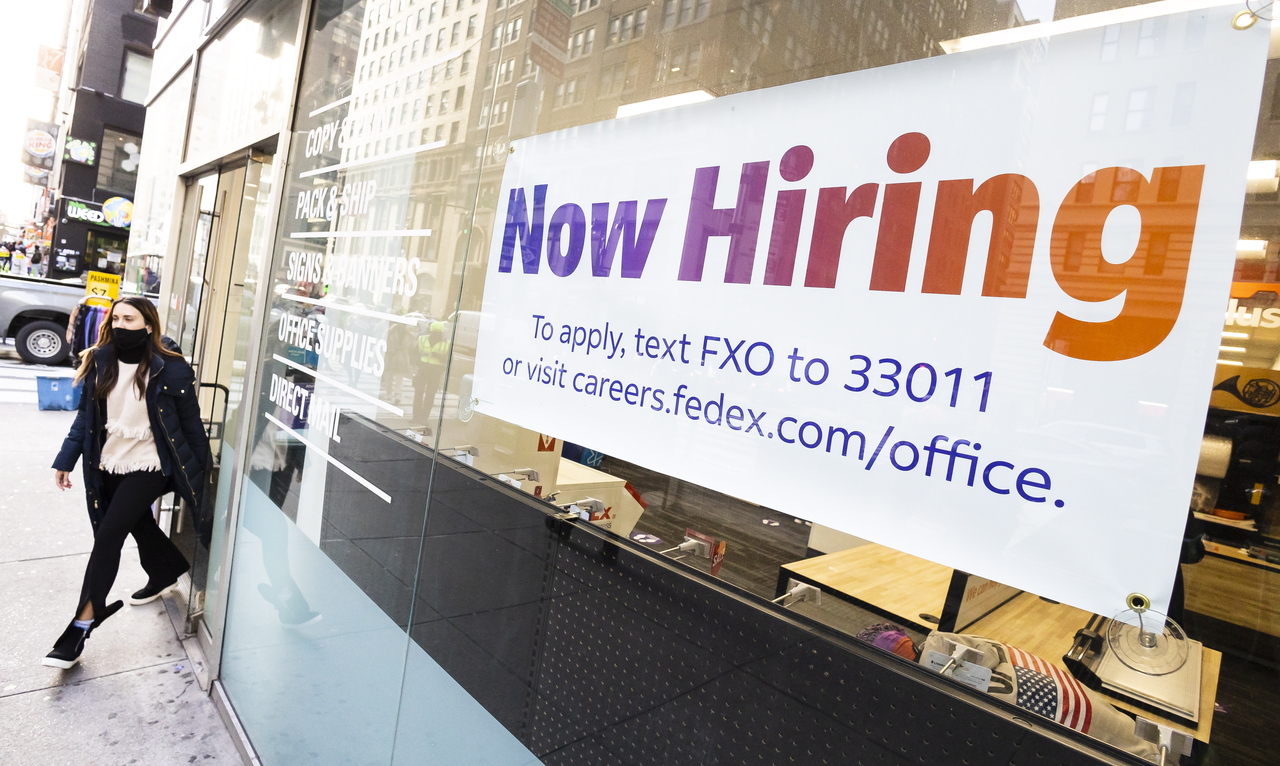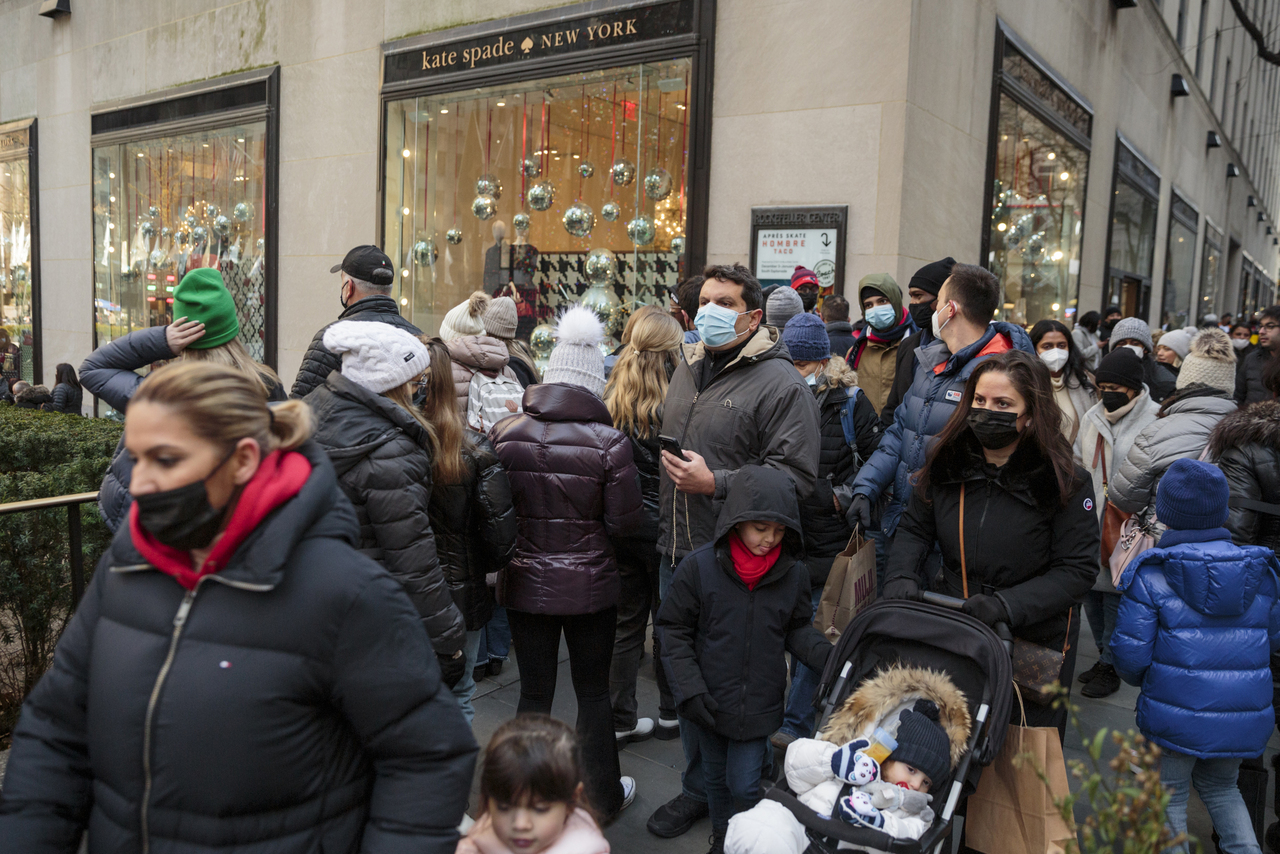More US workers quit jobs than ever amid strong employer demand
Sign up now: Get ST's newsletters delivered to your inbox

A sign advertising job openings in a store window in New York on Jan 4, 2022.
PHOTO: EPA-EFE
NEW YORK (NYTIMES) - The number of Americans quitting their jobs is the highest on record, as workers take advantage of strong employer demand to pursue better opportunities.
More than 4.5 million people voluntarily left their jobs in November last year, the Labour Department said on Tuesday (Jan 4). That was up from 4.2 million in October and was the most in the two decades that the government has been keeping track.
The surge in quitting in recent months - along with the continuing difficulty reported by employers in filling openings - underscores the strange, contradictory moment facing the United States economy after two years of pandemic-induced disruptions.
Much of the discussion about the increase in quitting, sometimes referred to as the Great Resignation, has focused on white-collar workers reevaluating their priorities in the pandemic. But job turnover has been concentrated in hospitality and other low-wage sectors, where intense competition for employees has given workers the leverage to seek better pay.
"This Great Resignation story is really more about lower-wage workers finding new opportunities in a reopening labour market and seizing them," said Mr Nick Bunker, director of economic research at the Indeed Hiring Lab.
For some workers, the rush to reopen the economy has created a rare opportunity to demand better pay and working conditions. But for those who are unable to change jobs as easily, or who are in sectors where demand is not as strong, pay gains have been more modest, and have been overwhelmed by faster inflation.
Data from the Federal Reserve Bank of Atlanta shows that job-switchers are getting significantly faster pay increases than people who stay in their jobs.
The stubborn nature of the Covid-19 pandemic itself contributed to the problems, upending spending patterns and keeping workers on the sidelines.
There are signs that the worst of the turbulence was beginning to ease late last year. The number of job openings posted by employers fell in November, the Labour Department said on Tuesday, though it remained high by historical standards. Hiring picked up, too. Earlier data showed that more people returned to the labour force in November, and various measures of supply-chain pressures began to ease.
But that was before the explosion in coronavirus cases linked to the Omicron variant, which has forced airlines to cancel flights, businesses to delay return-to-office plans and school districts to return temporarily to remote learning.
Forecasters say the latest Covid-19 wave is all but certain to prolong the economic uncertainty, though it is too soon to say how it will affect inflation, spending or the job market.
Despite the demand for workers and the pay increases landed by some, Americans are pessimistic about the economy. Only 21 per cent of adults said their finances were better off than a year ago, according to a survey released on Tuesday - down from 26 per cent when the question was asked a year earlier, even though, by most measures, the economy had improved substantially during that period.
The survey of 5,365 adults was conducted last month for The New York Times by Momentive, the online research firm formerly known as SurveyMonkey.
Overall consumer confidence is at the lowest level in the nearly five years that Momentive has been conducting its survey.
Republicans have been particularly pessimistic about the economy since President Joe Biden took office a year ago, but in recent months, Democrats, too, have become more dour. Other surveys have found similar results.
Inflation appears to be a big reason for people's dark outlook. Most respondents in the Momentive survey said inflation had not yet had a major effect on their finances. But nearly nine in 10 said they were at least somewhat concerned about inflation, and six in 10 said they were very concerned.

Shoppers on Fifth Avenue in Manhattan, New York on Dec 24, 2021.
PHOTO: NYTNS
"Pretty much the only group of people who say they're better off now than they were a year ago are people who've gotten a pay raise that matches or beats inflation," said Momentive research scientist Laura Wronski.
Yet some workers are seeing much faster wage growth. Hourly earnings for leisure and hospitality workers were up 12.3 per cent in November, much faster than inflation. Workers in other low-wage service sectors are also seeing strong gains.
In the Momentive survey, respondents who reported voluntarily changing jobs during the pandemic were more likely to say their wages had kept up with inflation, and more likely to rate the economy highly overall. Those who were laid off during the pandemic, or who have kept the same job throughout, were less likely to say their wages had kept pace.


